Support for those who self harm, their friends and family members
Self-harm is when somebody intentionally damages or injures their body, the physical pain of hurting themselves can feel like a distraction from the emotional pain they’re struggling with. For many people, self-harm can feel like a way to cope with difficult feelings or to release tension.
Self-harm can include, for example:
- self-cutting
- taking an overdose
- hitting or bruising
- intentionally taking too little or too much medication
- burning
- hanging
- suffocation
- attempted suicide
Although some people who self-harm may be suicidal, self-harm is often used as a way of managing difficult emotions without being a suicide attempt. However, self-harming can result in accidental death.
Self-harm is different for everyone; the reasons can change over time. For some people, self-harm may be linked to specific experiences that are happening either now, or in the past. For some people, you may not know or understand why you self-harm, but remember that you are not alone.
Below are some free resources which you can access to understand more about self-harm and how to support someone who self-harms.
YoungMinds – Supporting your child who is self-harming
NSPCC – Why do children and young people self-harm?
Calm Harm – An app designed to help people resist or manage the urge to self-harm. It’s private and password protected.
Coping with self-harm – A guide for parents and carers
No Harm Done – A parent’s journey
YoungMinds – Support for children and young people
Kooth – An online mental wellbeing community here to support you through anything. Big or small. Visit their online platform now. Up to age 25.
Samaritans – 116 123 Whatever you’re going through, a Samaritan will face it with you. We’re here 24 hours a day, 365 days a year.
Papyrus: Hopeline – For thoughts of suicide. Hopeline advisors will work with you to understand why thoughts of suicide might be present. They will also provide you with a safe space to talk through anything happening in your life that could be impacting on your or anyone else’s ability to stay safe. You can also call 0800 068 4141

